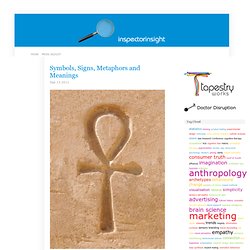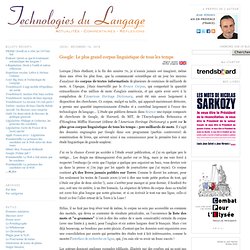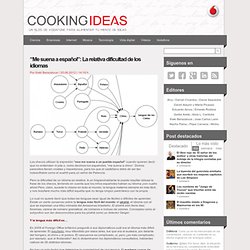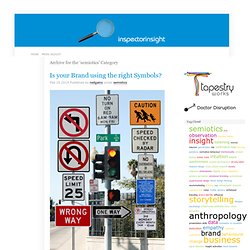

Semantic. Language Arts Worksheets. Languages & Linguistics. Languages in a Global World - Books. Good Ear - Online Ear Training Site. Is Your Language Making You Broke and Fat? How Language Can Shape Thinking and Behavior (and How It Can’t) Julie Sedivy is the lead author of Sold on Language: How Advertisers Talk to You And What This Says About You.

She contributes regularly to Psychology Today and Language Log. She is an adjunct professor at the University of Calgary, and can be found at juliesedivy.com and on Twitter/soldonlanguage. Keith Chen, an economist from Yale, makes a startling claim in an unpublished working paper: people’s fiscal responsibility and healthy lifestyle choices depend in part on the grammar of their language. Here’s the idea: Languages differ in the devices they offer to speakers who want to talk about the future.
For some, like Spanish and Greek, you have to tack on a verb ending that explicitly marks future time—so, in Spanish, you would say escribo for the present tense (I write or I’m writing) and escribiré for the future tense (I will write). Chen’s paper has yet to be accepted for publication, but it’s already generated a lot of press of the sort that’s festooned with flashing lights. Words & Language. Spelling & Grammar. Magazine: Language: Word Histories.
You can use an ordinary dictionary to find extraordinary histories of words.

This information is packed between the two brackets [ ] right before the definition of the entry word. (For an even richer experience, explore the venerable twenty-volume Oxford English Dictionary with its wealth of detail.) Look up the word window. You'll find that it comes from the Middle English (ME) windowe, which came from the Old Norse (ON) vindauga, which itself was formed from the two Old Norse words vindr, which meant "wind," and auga, which meant "eye.
" So window once meant "wind-eye," a poetic description appropriately suggesting a window's function of letting in both air and light. Find the history of other words. Symbols, Signs, Metaphors and Meanings. “Culture is the collective programming of the mind.” - Geert Hofstede A world of symbols What makes us all so interesting to researchers and marketers is our enquiring mind, and nothing shows this more vividly than the web of beliefs and ideas that we have created to make meaning from the complexity of the world around us.

A very important part of this framework is the vocabulary of signs and symbols that help remind us of our link to the world and each other. Signs are quite straightforward in their function of providing a visual language to help us understand the dangers ahead on the road, the feelings of a friend or the key benefits of a brand (signs are mainly but not always visual and may also be communicated through other senses). Symbols are more complex as they may represent a more abstract idea. The symbol above is Ankh, also known as the key of life, which represented eternal life to the ancient Egyptians. Language Appears to Shape Our Implicit Preferences. The Best Language Tools for Geeks. Home. Google: Le plus grand corpus linguistique de tous les temps. Lorsque j'étais étudiant, à la fin des années 70, je n'aurais jamais osé imaginer, même dans mes rêves les plus fous, que la communauté scientifique ait un jour les moyens d'analyser des corpus de textes informatisés de plusieurs de centaines de milliards de mots.

A l'époque, j'étais émerveillé par le Brown Corpus, qui comportait la quantité extraordinaire d'un million de mots d'anglais américain, et qui après avoir servi à la compilation de l'American Heritage Dictionary, avait été mis assez largement à disposition des chercheurs. Ce corpus, malgré sa taille, qui apparaît maintenant dérisoire, a permis une quantité impressionnante d'études et a contribué largement à l'essor des technologies du langage... J'ai eu la chance d'avoir pu accéder à l'étude avant publication, et j'ai eu quelque peu le vertige... Et pour le français ? Eh bien, tout est à faire. Les linguistes (français en tout cas) en auront-ils conscience ? Pour en savoir plus. Techno langage. “Me suena a español”: La relativa dificultad de los idiomas. Los checos utilizan la expresión “eso me suena a un pueblo español” cuando quieren decir que no entienden ni jota o, como decimos los españoles, “me suena a chino”.

Dichos parecidos tienen croatas y macedonios, para los que el castellano debe de ser tan indescifrable como el suahili para un señor de Palencia. Pero la dificultad de un idioma es relativa. A un hispanohablante le puede resultar obtusa la frase de los checos, teniendo en cuenta que los niños españoles hablan su idioma ¡con cuatro años! Pero, claro, sucede lo mismo en todo el mundo; la lengua materna siempre es más fácil, y nos resultará mucho más difícil aquella que no tenga ningún parentesco con la propia.
Murray Gell-Mann on the ancestor of language. Semiotics. Is your Brand using the right Symbols?

Our world is full of symbols, and we are all surrounded by symbols and signs every hour of every day. Our brains constantly use signs and symbols to access mental shortcuts. These shortcuts allow us to simplify and manage the world in all its complexity. For brands, these shortcuts are important to how customers perceive category and brand identities. Once established, such identities are hard to disrupt. 11 Brand Colours and their Meanings “There is no model; there is only colour” - Paul Cezanne Earlier this month, Cadbury lost the fight to fully trademark their distinctive purple colour (although it is uniquely theirs for chocolate).
Colours are powerful weapons in any branding toolkit and rich with meanings. The Semiotics of Market Research Agencies (Part 2) We know what the big global agencies think about themselves (read here), but what about the smaller global and regional agencies in Asia? 24.00 Problems of Philosophy, Fall 2005. Semiotics for Beginners by Daniel Chandler.